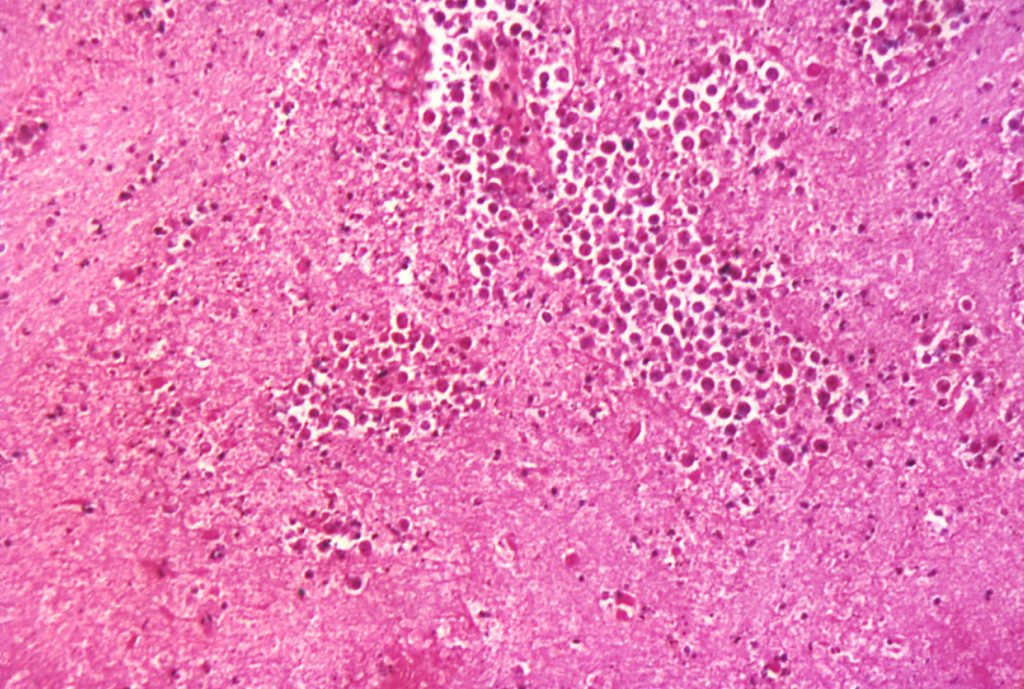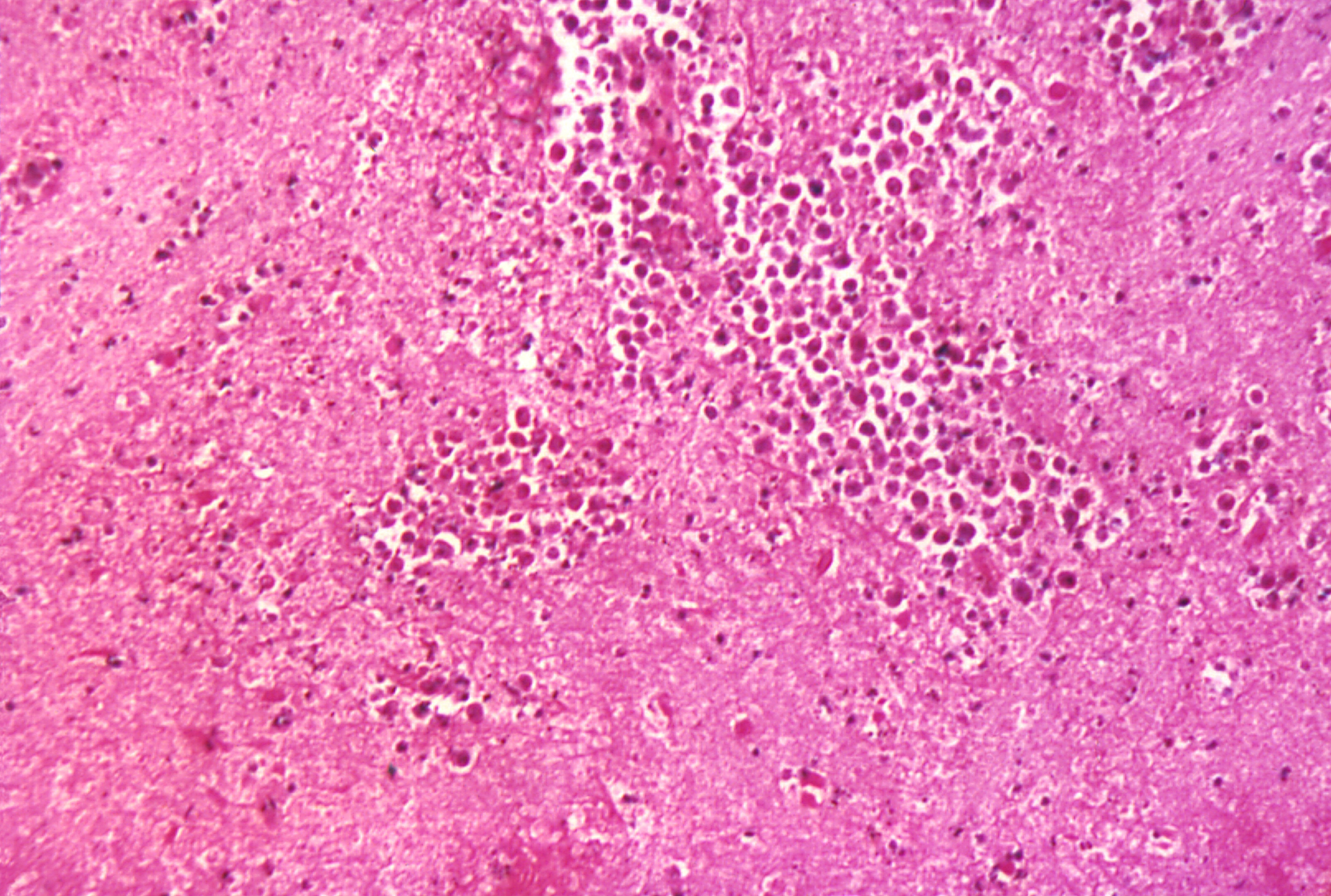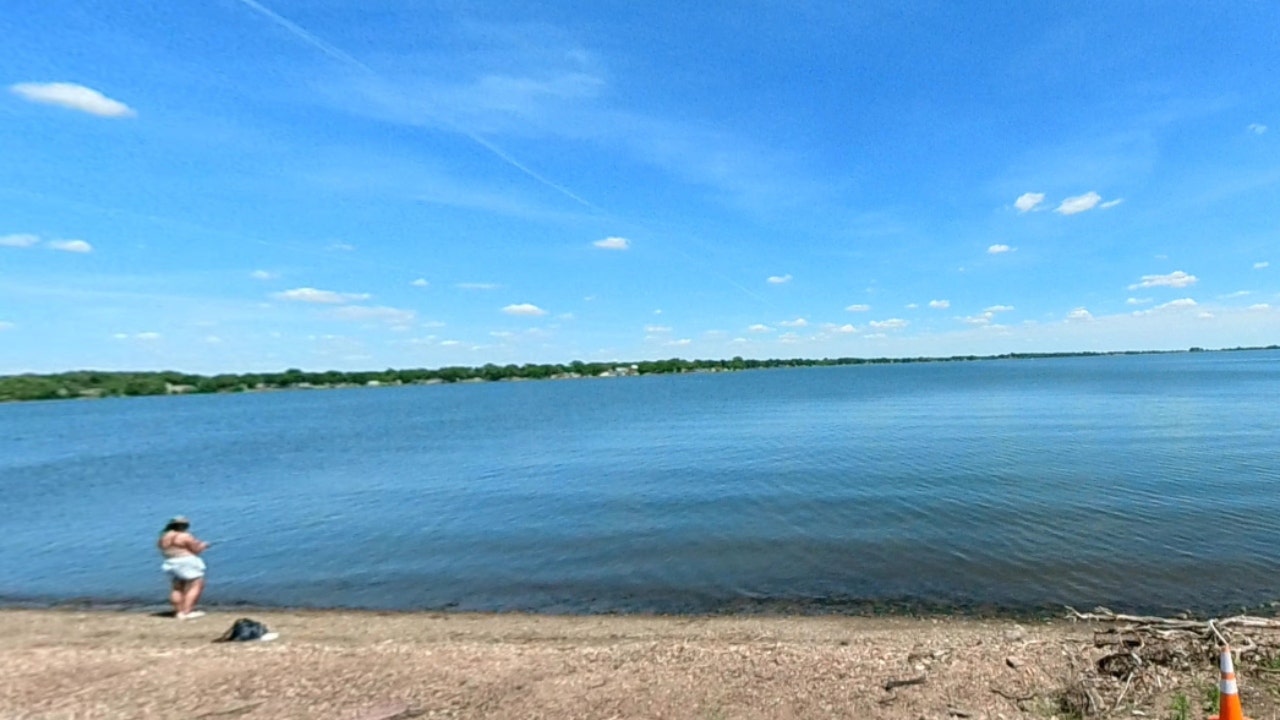
A Georgia resident has died from a rare “brain-eating amoeba,” the state’s health department confirmed last Wednesday.
The resident likely became infected while swimming in a freshwater lake or pond in Georgia, the health department said.
“Naegleria fowleri” is a rare infection that destroys brain tissue, causing brain swelling and usually death. The amoeba lives in soil and warm, freshwater lakes, rivers, ponds and hot springs. It is not found in salt water and is not found in properly treated drinking water and swimming pools.
Officials did not say where the victim was infected. Nor did officials release any additional information about the victim. This is the sixth case of the infection in Georgia since 1962.
JUST 4 MINUTES OF INTENSE DAILY ACTIVITY COULD SLASH CANCER RISK AMONG ‘NON-EXERCISERS,’ STUDY FINDS

Under a magnification of 125X, this photomicrograph of a brain tissue specimen depicts the cytoarchitectural changes associated with a free-living, Naegleria fowleri, amebic infection. (Smith Collection/Gado/Getty Images)
People can become infected when water containing the amoeba goes up a person’s nose. It cannot infect people if swallowed and is not spread from person to person.
COVID HOSPITALIZATIONS ARE ON THE RISE, COULD SIGNAL ‘LATE SUMMER WAVE,’ SAYS CDC
“The amoeba is naturally occurring, and there is no routine environmental test for Naegleria fowleri in bodies of water; and because it is very common in the environment, levels of the amoebas that naturally occur cannot be controlled,” health officials said. “The location and number of amoebas in the water can vary over time within the same body of water.”

FILE- “Naegleria fowleri” lives in soil and warm, freshwater lakes, rivers, ponds, and hot springs. (Google Maps)
Symptoms of an infection include severe headache, fever, nausea and vomiting and progress to a stiff neck, seizures and coma that can lead to death. Symptoms start about five days after infection but can start anywhere from 1 to 12 days after infection. Symptoms progress rapidly and can cause death within five days.
CLICK HERE TO GET THE FOX NEWS APP
People who choose to swim can reduce their risk of infection by limiting the amount of water that goes up their nose. The U.S. Centers for Disease Control and Prevention recommends not jumping or diving into bodies of fresh water, as well as holding your nose shut and keeping your head above water.
The Associated Press contributed to this report.

 Latest Breaking News Online News Portal
Latest Breaking News Online News Portal




